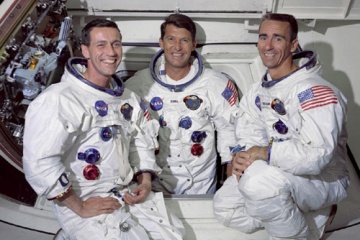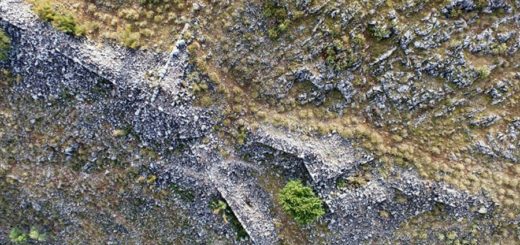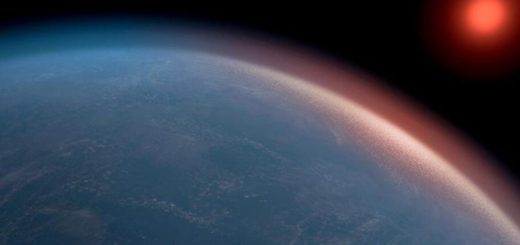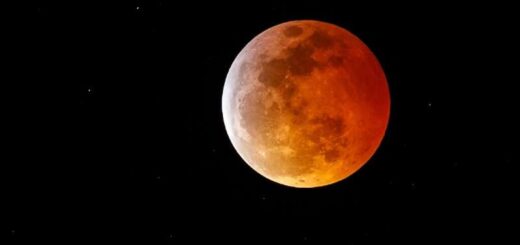Can you sneeze in space?

The Apollo command module, which took U.S. astronauts to the moon in the 1960s and 1970s, was a high-tech bucket of bolts, wires and circuits. It’s tough to imagine that three men in bulky spacesuits spent almost 11 days crammed into the capsule as it raced to space and back.
Now imagine that all three astronauts inside got sick simultaneously, coughing, hacking, and sneezing. That’s what happened in 1968, when the crew of Apollo 7 tested the command module in Earth’s orbit.
Astronauts Wally Schirra, Walt Cunningham and Donn Eisele all came down with head colds at the same time. It was so bad that the astronauts wouldn’t don their helmets during re-entry, wary of their stopped-up ears popping painfully. For most of the flight, the trio had been sneezing, coughing and doing all the other things that people with colds do [source: Klunger].
Although George Clooney or Sandra Bullock didn’t sneeze in the movie “Gravity,” real astronauts do. They also cough and blow their noses. Frank Borman in Apollo 8, the first manned mission to the moon, vomited and had diarrhea [source: Howell]. All of these lovely events might happen in the cozy confines of a spaceship or out on a spacewalk with a helmet on. The things that make an astronaut sneeze in space are the same things that make all of us sneeze on Earth. Ready to find out what they are?
Space-age Bugs
Our noses are like vacuum cleaners. Every time we suck in air through our nostrils, we inhale bits of dust, dirt, bacteria and viruses. The hairs in our nostrils, known as cilia, filter out most of the irritants, as do the nose’s bony shelves called carbinates. Despite those defenses, some microbes escape and travel into the nasal passage. When that happens, tiny nerves in the nose send a signal to the brain’s medulla, which sits in the lower brain stem. The brain, which is the body’s command center, tells the muscles in the chest and throat to tighten. It also tells the eyes to shut, and the mouth to close. As the throat and chest contract, a person sneezes [source: Washington Post].
Sneezing isn’t exactly a bad thing. Like coughing and vomiting, sneezing allows our bodies to rid us of things that make us sick, clearing the nasal cavity with a stream of saliva and irritant-trapping mucus. However, sneezing, as you well know, is annoying, even more so in outer space. That’s because space capsules and space stations are giant microgravity petri dishes. Tight quarters combined with microgravity provide a perfect breeding ground for germs [sources: Klunger, Orenstein].
If a person sneezes or coughs on Earth, the germs fly of that person’s mouth for 3 to 6 feet (1 to 2 meters) before gravity takes over and they fall to the ground [source: Orenstein]. In space, germs stay suspended for a long, long time. When they eventually do settle, they land on instrument panels, utensils, laboratory equipment, toilet seats, and even the dinner table. Moreover, microgravity wreaks havoc on the human immune system, making astronauts more likely to get sick from those slow-moving, high-flying germs.
According to Dr. Leonard Mermel of Brown University, who has studied the impact of microgravity on infectious diseases, out of 106 NASA spaceflights there have been 29 reported cases of infectious disease among 742 crew members [source: Orenstein].
Scientists do not fully comprehend why spaceflight causes the human immune system to get out of whack. Wounds are harder to heal, and the body’s infection-fighting cells don’t work as efficiently as they do on Earth. Meanwhile, pathogens that can make an astronaut sick suddenly sprout muscles and become stronger. In 2006 and 2008, NASA sent salmonella up in the space shuttle to see how the near lack of gravity affected the infectious bacteria responsible for food poisoning. Mice that were fed the space version of the bacteria were three times more likely to get sick. They died more quickly than mice infected with the Earth-bound strain. Salmonella and other space germs cling to surfaces better and laugh in the face of antimicrobial agents, which are less effective in space than here on Earth [sources: Associated Press, Klunger,Orenstein].
It’s no small wonder astronauts sneeze and cough in space.



 Creators of mankind
Creators of mankind Description of “Tall white aliens”
Description of “Tall white aliens” Where they came from?
Where they came from? About hostile civilizations
About hostile civilizations The war for the Earth
The war for the Earth “Tall white aliens” about eternal life
“Tall white aliens” about eternal life Video: “Nordic aliens”
Video: “Nordic aliens” Aliens
Aliens Alien encounters
Alien encounters The aliens base
The aliens base UFO
UFO Technology UFO
Technology UFO Underground civilization
Underground civilization Ancient alien artifacts
Ancient alien artifacts Military and UFO
Military and UFO Mysteries and hypotheses
Mysteries and hypotheses Scientific facts
Scientific facts


















